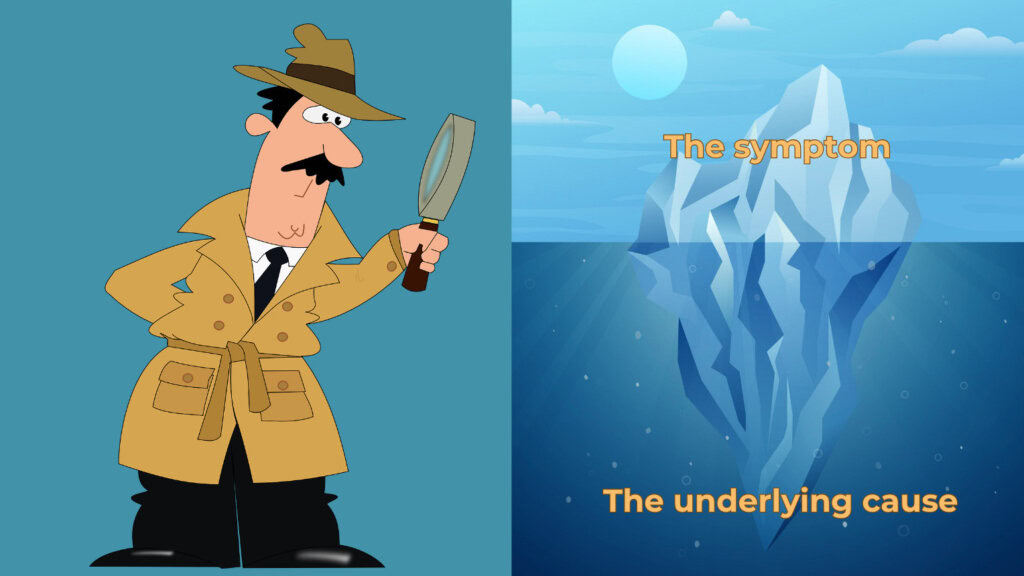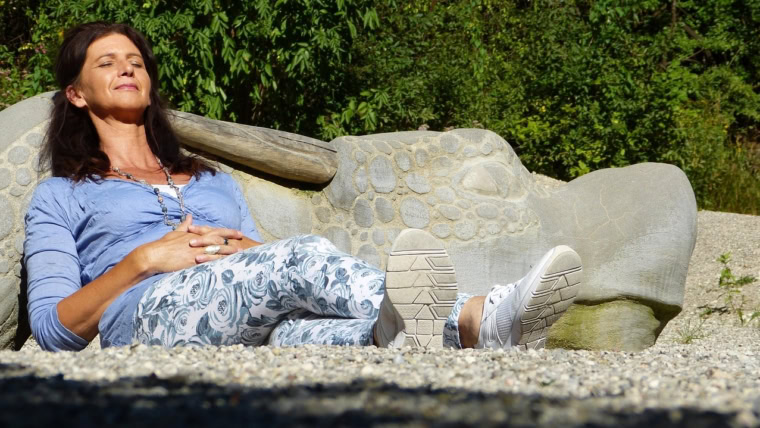We all know someone like this: they eat well, move their body, manage their stress, maybe even meditate regularly. And yet, despite their best efforts, chronic symptoms linger headaches, fatigue, digestive issues, skin flare-ups. Nothing that screams “disease,” just a constant, quiet discomfort.
And then there’s the other type: someone who lives an unhealthy lifestyle and knows it. They can recite every wellness blog, podcast, and tip, but they’re stuck in old patterns, unable to change despite wanting to.
What’s going on here? Why do some people live “by the book” and still suffer? And why do others know what to do but can’t do it?
To answer this, let’s meet five people. They each struggle with the same kinds of symptoms. But as we’ll see, the root causes couldn’t be more different.
The Same Symptoms, Five Different Stories
Meet Carol, Linda, and Nancy.

On the surface, they look remarkably similar. All have:
- Mild fatigue
- Headaches
- Digestive discomfort
- Weight fluctuations
- A history of trying everything – from mindfulness and gym routines to high-quality supplements and stress management
Yet nothing seems to work.
All their labs are “normal.” They’re told it’s probably stress. Which, ironically, only makes them more stressed.
So what’s really happening?
Carol: The Quiet Voice Saying “You’re Not Enough”
Carol is responsible. Supportive. She never says no, even when she’s running on empty. She hides her feelings to avoid judgment and constantly hears a critical inner voice whispering, “You should do better.”
Her body speaks: afternoon fatigue, temple pressure, digestive bloating, chocolate cravings.
A homeopath sees something deeper. Carol’s physical symptoms are rooted in a mental pattern of chronic self-criticism and people-pleasing, a quiet but constant rejection of her own needs. The real issue? She doesn’t believe she’s good enough.
And that inner tension? It manifests physically. No supplement or diet tweak will fix it, unless that core belief is addressed.
Linda: Confident On the Outside, Fearful On the Inside
Linda is bold, opinionated, and assertive. Until it comes to intimacy.
When people get close, she pushes them away. Makes excuses. Finds flaws. It’s not that she doesn’t want connection, she’s terrified of being seen.
Physically, she wakes up tired, feels bloated, gets forehead headaches. Emotionally? She’s compensating for deep insecurity with overconfidence. Her symptoms are not random. They reflect a body under chronic emotional tension, always in self-protection mode.
Again, same symptoms, different story.
Nancy: The Hidden Grief That Won’t Let Go
Nancy used to have a quiet but fulfilling social life. That changed after her divorce. Bit by bit, she withdrew. The grief was never overwhelming, just a low hum in the background.
Now, her body is carrying the weight. Tired mornings. A heavy sensation in her gut. Expanding headaches. Salty cravings. She says she’s “fine.” Her body says otherwise.
Her root cause? Unprocessed grief and emotional isolation. Her healing starts not with new habits, but with reconnecting to what she’s buried.
So… Same Symptoms? Not Quite.

At first glance, these women seemed to be dealing with the same issue. But when we looked beneath the surface, the truth was more complex:
- Carol: Mental root cause → self-criticism and people-pleasing
- Linda: Emotional root cause → intimacy issues masked by control
- Nancy: Emotional root cause → buried grief and disconnection
Even their fatigue showed up differently:
- Carol: 3–5 PM crash
- Linda: struggles in the early morning and again in the evening
- Nancy: feels worst around 10 AM
Their headaches, cravings, and digestive issues? All uniquely patterned.
The details matter. The body is speaking, if we know how to listen.
What About the Unhealthy Ones Trying to Change
Now let’s flip the script.
Meet Cindy and Susan. Both have unhealthy lifestyles, junk food, late nights, erratic routines. And both want to change.
But their stories diverge here.
Cindy has no emotional baggage around health. She simply lacks education and structure. With proper guidance and accountability, she’s likely to succeed, and feel better fast.
Susan, on the other hand, knows exactly what to do. She’s read the books. Done the meal plans. Bought the gym membership. And failed, again and again.
Why?
Her homeopathic analysis reveals a deeper issue: a suppressed belief that she’s unlovable and weak, formed during childhood. Eating is her coping mechanism, her escape from emotional pain.
You can’t out-discipline unresolved pain.
The Takeaway: Symptoms Are Just the Tip of the Iceberg
The core principle here is this:
A surface problem often hides a deeper cause.
In homeopathy, and in life, healing begins by identifying where the imbalance originates. It could be:
- Mental (like with Carol)
- Emotional (like with Linda and Nancy)
- Or even just lack of knowledge and guidance (like Cindy)
But here’s the key: even if the symptoms look the same, the treatment can’t be. Each case is unique. Each person has their own story, their own web of triggers and beliefs, habits and emotions.
That’s why generic advice often fails. And why real healing asks us to go deeper.
Three Pillars of True Healing
- Interconnectedness: Mind, emotions, and body aren’t separate. They influence each other constantly. Symptoms reflect this interplay.
- Individualization: Two people with the same symptom might need completely different solutions. We heal best when we’re treated as individuals, not diagnoses.
- Root-Cause Thinking: “It’s just stress” isn’t an answer. We need to ask:
- What kind of stress?
- Why does it affect me this way?
- Where does it come from, physically, emotionally, or mentally?
Only with that clarity can we begin to unwind the true problem.
A Problem Well-Stated Is Half Solved
So next time you, or someone you care about, struggles with a chronic issue, ask:
What’s lurking beneath the surface?
Even if you don’t get the full answer right away, just asking that question gets you closer.
Because lasting change doesn’t come from fighting symptoms, it comes from understanding them.
Prefer listening?
You can watch the video version of this article here:



